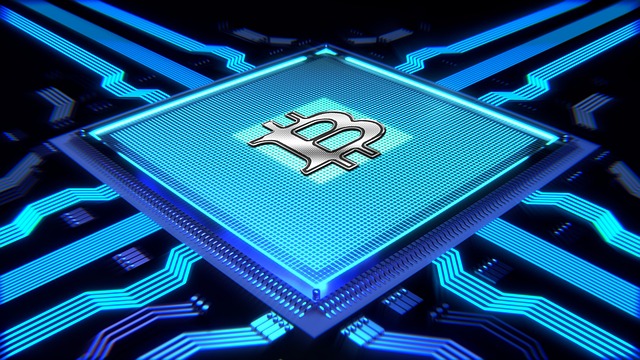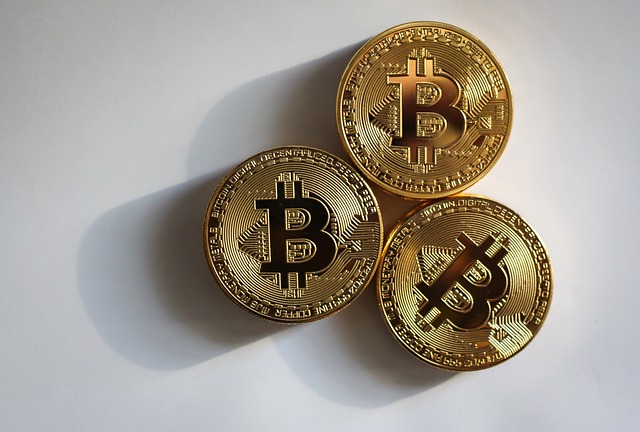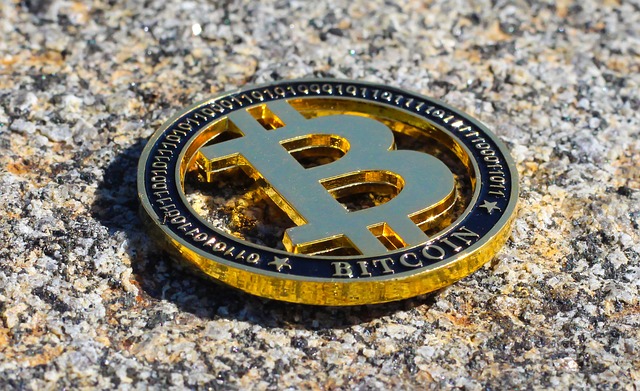The Tech Behind DeFi: Unveiling the Technology Ecosystem
The Tech Behind DeFi: Unveiling the Technology Ecosystem

The Power of Decentralized Finance
Decentralized finance, commonly known as DeFi, has emerged as a revolutionary force in the world of finance. By leveraging blockchain technology and smart contracts, DeFi provides individuals with the ability to perform financial transactions without relying on intermediaries such as banks or traditional financial institutions. This democratization of finance has unleashed a new level of financial freedom, allowing users to have full control over their assets and eliminating the need for third-party trust.
One of the key advantages of DeFi is its accessibility. Unlike traditional finance, which often requires extensive paperwork, time-consuming processes, and high barriers to entry, DeFi platforms are open to anyone with an internet connection. This means that individuals from all walks of life, regardless of their geographical location or financial status, can participate in DeFi activities. Whether it’s lending, borrowing, trading, or investing, DeFi platforms provide equal opportunities for everyone to engage in financial activities and reap the benefits of this decentralized ecosystem.
Understanding the Foundation of DeFi
Decentralized Finance, or DeFi, has taken the financial world by storm. It is a new and innovative approach that leverages blockchain technology to create an open and accessible financial system. The foundation of DeFi lies in the concept of decentralization, which aims to remove intermediaries and give users more control over their financial transactions. By utilizing blockchain technology, DeFi eliminates the need for traditional financial institutions, such as banks, and allows for peer-to-peer transactions.
Blockchain technology, the backbone of DeFi, is a distributed ledger that records transactions across multiple computers in a secure and transparent manner. This technology ensures that all transactions are verified and cannot be tampered with. Smart contracts, which are self-executing contracts with the terms of the agreement directly written into code, play a vital role in the foundation of DeFi. These contracts automatically execute transactions once certain conditions are met, eliminating the need for intermediaries and increasing efficiency.
Overall, the foundation of DeFi rests on the principles of decentralization, blockchain technology, and smart contracts. These components work in harmony to create a financial system that is accessible, transparent, and secure. With DeFi, individuals have the opportunity to take control of their financial activities and participate in a truly open and inclusive financial ecosystem.
Exploring Blockchain Technology
Blockchain technology is a revolutionary concept that has taken the world by storm. It serves as the backbone of various decentralized systems, enabling secure and transparent transactions without the need for intermediaries. At its core, a blockchain is a decentralized and immutable digital ledger that records and verifies transactions across multiple computers or nodes. Each transaction is bundled into a block and added to the chain in a chronological order. This decentralized nature ensures that all participants in the network have a copy of the blockchain, making it highly resistant to fraud and tampering.
One of the key benefits of blockchain technology is its transparency.

• Blockchain technology is a decentralized and immutable digital ledger that records and verifies transactions across multiple computers or nodes.
• Each transaction is bundled into a block and added to the chain in chronological order.
• The decentralized nature of blockchain ensures that all participants have a copy of the blockchain, making it highly resistant to fraud and tampering.
• Blockchain technology promotes transparency by allowing every transaction to be publicly verifiable.
• Anyone can access the blockchain and view the entire transaction history, promoting trust and accountability.
• Blockchain operates through a consensus mechanism where multiple participants validate and agree on each transaction, eliminating the need for a central authority.
• This gives power back to users, creating a more democratic and inclusive system.
• Blockchain has the potential to revolutionize industries such as finance, supply chain management, healthcare, and voting systems.
The Role of Smart Contracts
Smart contracts are the backbone of decentralized finance (DeFi) systems. These self-executing contracts are built on blockchain technology, providing security and trust in financial transactions without the need for intermediaries. With the help of smart contracts, individuals can interact with DeFi protocols, such as lending and borrowing platforms, in a transparent and automated manner.
The role of smart contracts in DeFi is to ensure that transactions and agreements are executed automatically once predefined conditions are met. This streamlines processes, removes the need for intermediaries, and reduces costs.

Unlocking the Potential of Ethereum
One of the most exciting aspects of decentralized finance (DeFi) is the potential that Ethereum brings to the table. As a blockchain platform, Ethereum allows developers to build and deploy smart contracts, which are self-executing contracts with the terms of the agreement directly written into the code. This opens up an entirely new world of possibilities, where financial transactions, applications, and services can be executed without the need for intermediaries or traditional financial institutions.
Ethereum not only provides the infrastructure for decentralized applications (DApps) to flourish, but it also enables the creation and management of decentralized autonomous organizations (DAOs). These are organizations that operate without a central authority, relying on transparent and autonomous decision-making processes ingrained within smart contracts. This innovation has the potential to revolutionize industries beyond finance, as it allows for more efficient, secure, and transparent governance models that are not subject to the vulnerabilities of centralized control. With Ethereum at the helm, the possibilities for unlocking the potential of DeFi are immense, fostering a new era of financial inclusivity and innovation.
The Importance of Decentralized Applications (DApps)
Decentralized Applications (DApps) have emerged as an integral part of the decentralized finance (DeFi) ecosystem. These applications run on blockchain technology, enabling users to interact with financial services in a trustless and secure manner. What makes DApps significant is their ability to remove intermediaries, facilitating direct peer-to-peer transactions. By eliminating middlemen, DApps empower individuals to have full control over their financial activities, without relying on traditional financial institutions.
Moreover, DApps offer unprecedented transparency in financial transactions. Every transaction recorded on the blockchain is visible to all participants, ensuring that no activities are hidden or manipulated. This transparency fosters a higher level of trust among users, as they can verify the legitimacy and integrity of the DApp’s operations. Additionally, DApps often utilize smart contracts, which are self-executing contracts with predefined rules. These contracts automate processes and remove the need for third-party arbitrators, making transactions more efficient and cost-effective.
Overall, the importance of DApps lies in their ability to democratize finance and empower individuals by offering secure, transparent, and efficient financial services. As the DeFi space continues to grow and innovate, we can expect even more groundbreaking DApps to emerge, reshaping the way we interact with and manage our personal finances.
Diving into Decentralized Exchanges (DEXs)
Decentralized exchanges (DEXs) have emerged as a popular alternative to traditional centralized exchanges in the world of cryptocurrency trading. These DEXs operate on blockchain technology, allowing for direct peer-to-peer transactions without the need for intermediaries. One of the key advantages of DEXs is the removal of the centralized authority, which brings greater control and security to the users.
With decentralized exchanges, users retain control of their funds as there is no reliance on a centralized entity to hold and manage their funds. Instead, transactions occur directly between buyers and sellers through smart contracts. This not only ensures transparency but also eliminates the risks associated with a central point of failure or hacking attacks. Additionally, DEXs minimize the need for KYC (Know Your Customer) requirements, allowing users to trade in a more anonymous manner. By leveraging the power of blockchain technology, DEXs have opened up new avenues for both experienced traders and beginners to participate in the exciting world of cryptocurrency trading.
The Rise of Decentralized Lending and Borrowing
Decentralized lending and borrowing have emerged as one of the most exciting and disruptive applications of blockchain technology. In traditional finance, the process of obtaining a loan or borrowing funds often involves middlemen such as banks or lending institutions. However, with the rise of decentralized lending platforms, individuals can now engage in peer-to-peer lending and borrowing directly, without the need for intermediaries.
One of the key advantages of decentralized lending and borrowing is the elimination of third-party control. By leveraging smart contracts on blockchain networks, borrowers can take advantage of transparent and automated processes that eliminate the need for trust in a centralized entity. This increased transparency and efficiency create opportunities for individuals who may have been excluded or underserved by traditional financial systems. Additionally, decentralized lending and borrowing platforms often offer more competitive interest rates and lower fees than traditional financial institutions, further enhancing their appeal to borrowers and lenders alike.
The Significance of Decentralized Stablecoins
Decentralized stablecoins have emerged as a critical component in the world of decentralized finance (DeFi). These digital currencies are designed to maintain a stable value, typically pegged to a fiat currency like the US dollar. Unlike traditional cryptocurrencies that experience high volatility, stablecoins offer a reliable store of value and enable seamless transactions within the DeFi ecosystem.
One of the primary advantages of decentralized stablecoins is their ability to reduce exposure to market volatility. This stability allows users to confidently transact and engage in various DeFi activities without worrying about sudden price fluctuations. Stablecoins also act as a bridge between the traditional financial system and the decentralized world, enabling users to easily move value between the two ecosystems.

Security and Trust in DeFi Systems
Decentralized Finance (DeFi) systems are built upon the foundation of trust and security. With traditional centralized systems, users have to rely on intermediaries to ensure the safety of their assets and transactions. However, DeFi brings a new level of security by leveraging blockchain technology and smart contracts.
One of the key advantages of DeFi is its ability to provide transparent and auditable transactions. Blockchain, the underlying technology behind DeFi, is a decentralized and immutable ledger that records all transactions in a transparent manner. This eliminates the need for individuals to place blind trust in centralized authorities, as anyone can verify the accuracy and integrity of the transactions on the blockchain. Additionally, smart contracts, which are self-executing contracts with the terms written into code, eliminate the need for intermediaries and reduce the risk of fraud or manipulation.
The trust and security offered by DeFi systems are further enhanced by the open and permissionless nature of the Ethereum blockchain, which is the most widely used platform for DeFi applications. By allowing anyone to participate in the ecosystem and verify transactions, Ethereum creates a system where security is ensured through decentralized consensus. This means that no single entity has control over the network, reducing the risk of malicious attacks or censorship.
Security and trust are fundamental pillars of DeFi systems, as they provide users with the confidence to entrust their assets and engage in financial activities without intermediaries. By leveraging blockchain technology, smart contracts, and the decentralized nature of platforms like Ethereum, DeFi is revolutionizing traditional finance by offering enhanced security and empowering individuals to have full ownership and control over their financial transactions.
What is DeFi?
DeFi stands for Decentralized Finance, which is a financial system that operates on blockchain technology and eliminates the need for intermediaries like banks.
How does blockchain technology play a role in DeFi systems?
Blockchain technology is the underlying technology that enables the decentralized and transparent nature of DeFi systems. It ensures secure and immutable transactions.
What are smart contracts?
Smart contracts are self-executing contracts with the terms of the agreement directly written into code. They automatically enforce the agreed-upon conditions, making transactions in DeFi systems more efficient and trustworthy.
What is Ethereum’s role in DeFi?
Ethereum is the most popular blockchain platform for DeFi applications. It provides the infrastructure and tools necessary for developers to create decentralized applications (DApps) and execute smart contracts.
What are decentralized applications (DApps)?
DApps are applications that run on a decentralized network, typically a blockchain. They offer various functionalities like trading, lending, and borrowing, without relying on a centralized authority.
What are decentralized exchanges (DEXs)?
DEXs are platforms that allow users to trade cryptocurrencies directly with each other without the need for intermediaries. They offer increased security and privacy compared to centralized exchanges.
What is decentralized lending and borrowing?
Decentralized lending and borrowing platforms enable individuals to lend their cryptocurrencies and earn interest or borrow cryptocurrencies by offering collateral. These platforms operate without intermediaries, providing more accessibility and lower fees.
What are decentralized stablecoins?
Decentralized stablecoins are cryptocurrencies that aim to maintain a stable value by pegging it to a specific asset, such as fiat currency or a basket of assets. They provide stability in the volatile cryptocurrency market.
How do DeFi systems ensure security and trust?
DeFi systems use various security measures like encryption, multi-signature wallets, and audits of smart contracts to ensure the safety of users’ funds. Additionally, the transparent nature of blockchain technology enhances trust among participants.
Todays Featured Product:
Buy, exchange and grow your crypto securely with a Ledger hardware wallet, combined with the Ledger Live app. It’s never been easier to keep your crypto safe and accessible. Buy direct from Ledger.com and get todays Special Offers Here.




